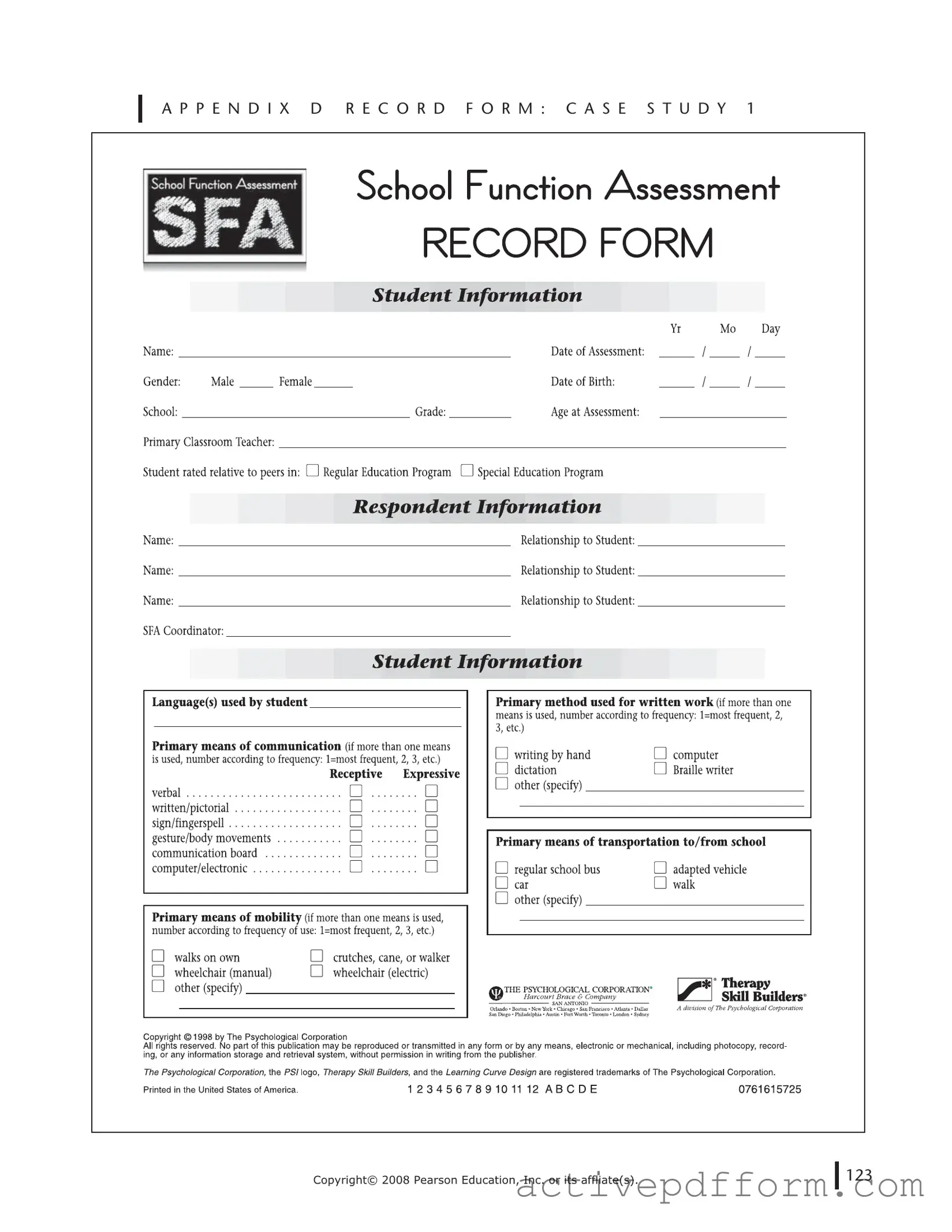Free School Function Assessment Template
The School Function Assessment (SFA) form is a vital tool designed to evaluate a student's functional abilities within the school environment. This assessment focuses on a range of areas, including participation in school activities, the support needed for successful engagement, and the student's performance in various tasks. The SFA is structured to gather information from teachers and other school personnel, ensuring a comprehensive view of the child's capabilities. By assessing different dimensions such as physical, social, and academic skills, the form helps in identifying specific needs and potential interventions. Additionally, the SFA serves as a resource for developing individualized education plans (IEPs), promoting tailored support that aligns with each student's unique requirements. This assessment not only aids educators in understanding the challenges faced by students but also fosters collaboration among families, teachers, and support staff to enhance the overall educational experience.
Document Specifics
| Fact Name | Description |
|---|---|
| Purpose | The School Function Assessment form is designed to evaluate a student's functional performance in a school setting. |
| Target Population | This assessment is typically used for students with disabilities to identify their needs and strengths. |
| Components | The form includes sections that assess various areas such as participation, task performance, and support needs. |
| Administration | Teachers and other school personnel generally administer the assessment, often involving input from parents. |
| Frequency | Schools may conduct the assessment annually or as needed to monitor changes in student performance. |
| Data Use | The information collected helps in developing Individualized Education Programs (IEPs) tailored to each student's requirements. |
| State-Specific Forms | Some states have their own versions of the form, governed by local laws such as the Individuals with Disabilities Education Act (IDEA). |
| Confidentiality | All information gathered through the assessment is confidential and must be handled according to privacy regulations. |
| Training | Staff administering the assessment typically undergo training to ensure accurate and effective evaluation. |
Similar forms
The School Function Assessment (SFA) form is a valuable tool used to evaluate a student's functional abilities in a school setting. Several other documents share similarities with the SFA, each serving distinct yet complementary purposes in assessing student needs. Here are seven documents that align closely with the SFA:
- Individualized Education Program (IEP): Like the SFA, the IEP outlines specific educational goals and services tailored to meet a student's unique needs. Both documents focus on the individual’s abilities and challenges within the school environment.
- Functional Behavioral Assessment (FBA): The FBA identifies specific behaviors that may hinder a student's learning. Similar to the SFA, it examines how a student interacts with their environment, helping educators develop effective strategies to support the student.
- Assessment of Basic Language and Learning Skills (ABLLS): This tool assesses a student's language and learning skills, similar to how the SFA evaluates functional performance in school. Both documents aim to enhance educational outcomes by identifying areas for improvement.
- Child Behavior Checklist (CBCL): The CBCL gathers information about a child's behavior and emotional well-being. Like the SFA, it provides insights into how a child functions in various settings, which can inform educational planning.
- Horse Bill of Sale Form: To ensure a clear transfer of ownership, refer to our essential Horse Bill of Sale documentation for reliable and legal transactions.
- Developmental Assessment of Young Children (DAYC): This assessment evaluates a child's developmental progress across various domains. Similar to the SFA, it focuses on functional abilities and how they impact a child's participation in school activities.
- Wechsler Individual Achievement Test (WIAT): The WIAT measures academic skills and learning disabilities. While the SFA focuses on functional performance, both documents contribute to a comprehensive understanding of a student's educational needs.
- Vineland Adaptive Behavior Scales: This tool assesses adaptive behaviors necessary for daily living. Like the SFA, it provides insights into how well a student can function in their environment, informing support strategies in the school context.
School Function Assessment Example
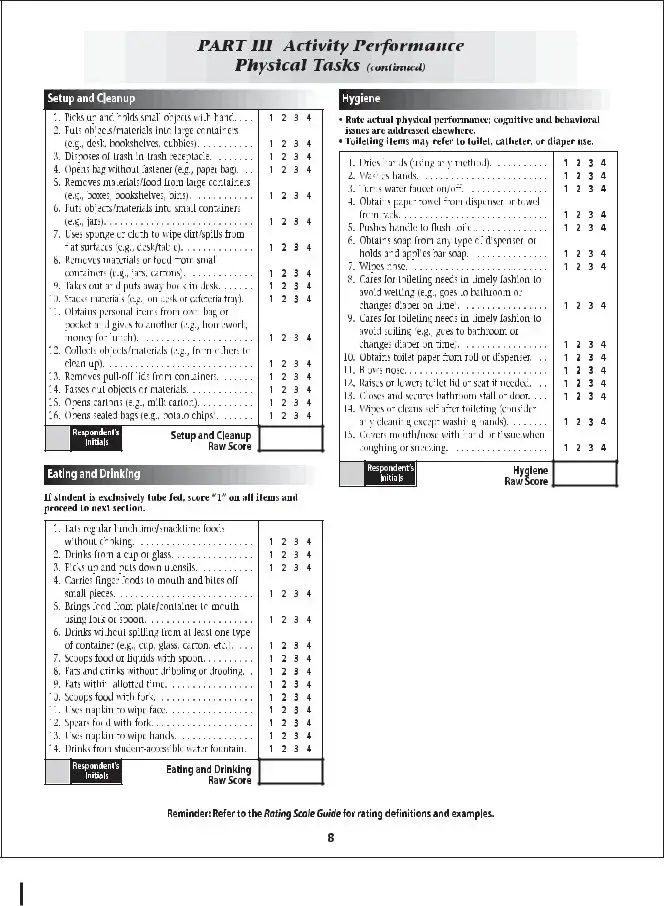
A P P E N D I X D R E C O R D F O R M : C A S E S T U D Y 1 |
Copyright© 2008 Pearson Education, Inc. or its affliate(s).
123
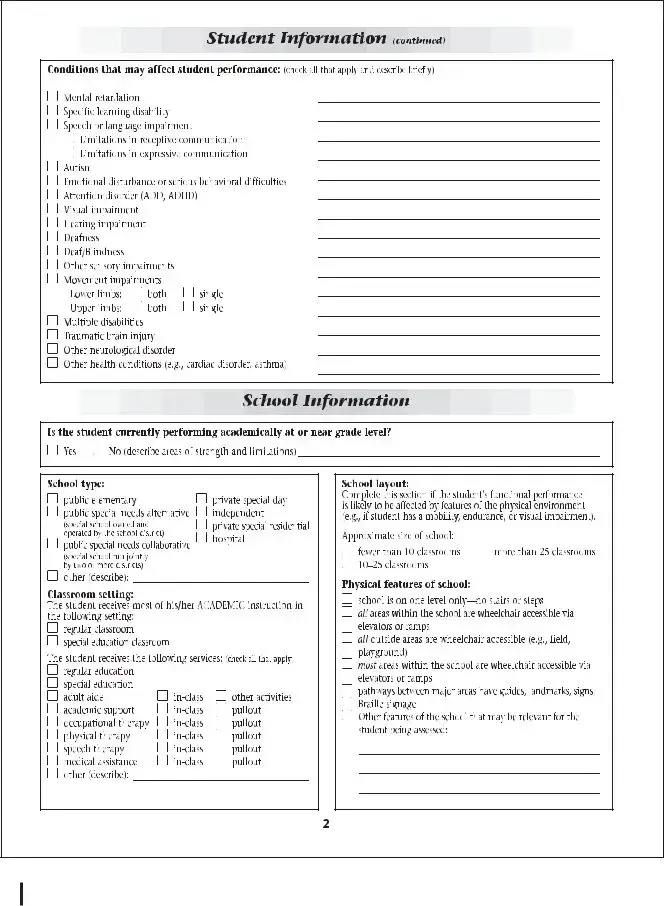
R E C O R D F O R M : C A S E S T U D Y 1 |
124
Copyright© 2008 Pearson Education, Inc. or its affliate(s).
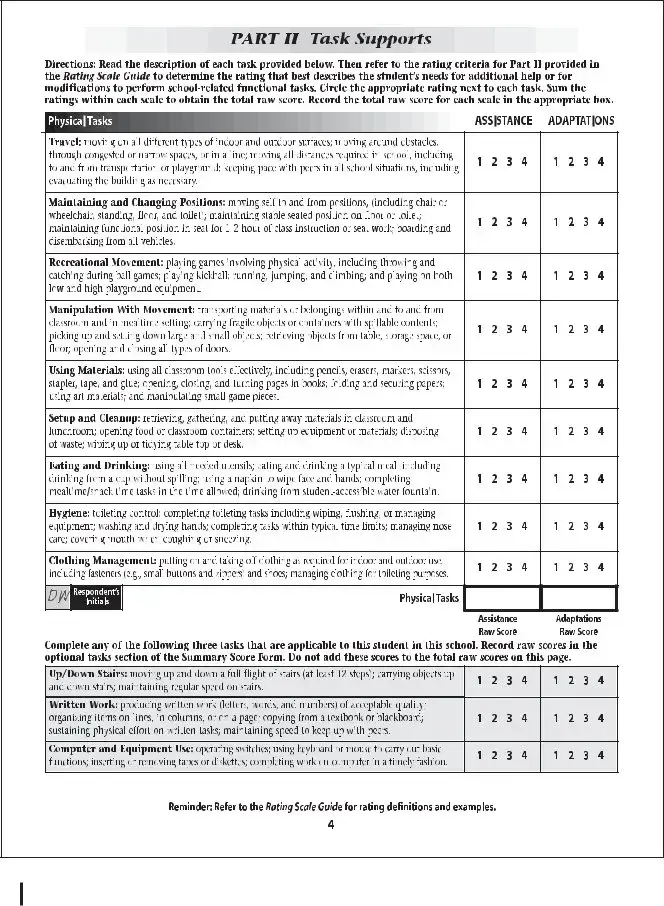
R E C O R D F O R M : C A S E S T U D Y 1 |
Copyright© 2008 Pearson Education, Inc. or its affliate(s).
125
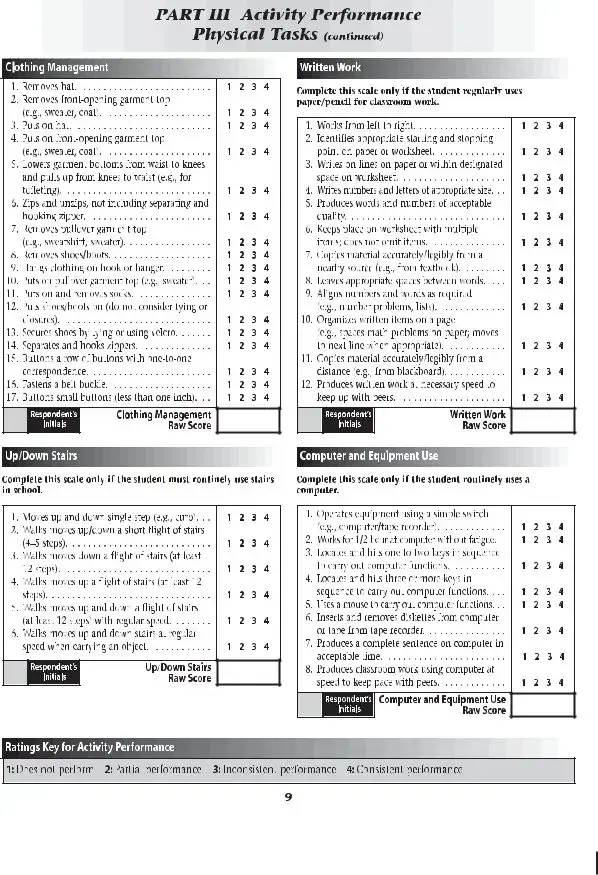
R E C O R D F O R M : C A S E S T U D Y 1 |
126
Copyright© 2008 Pearson Education, Inc. or its affliate(s).
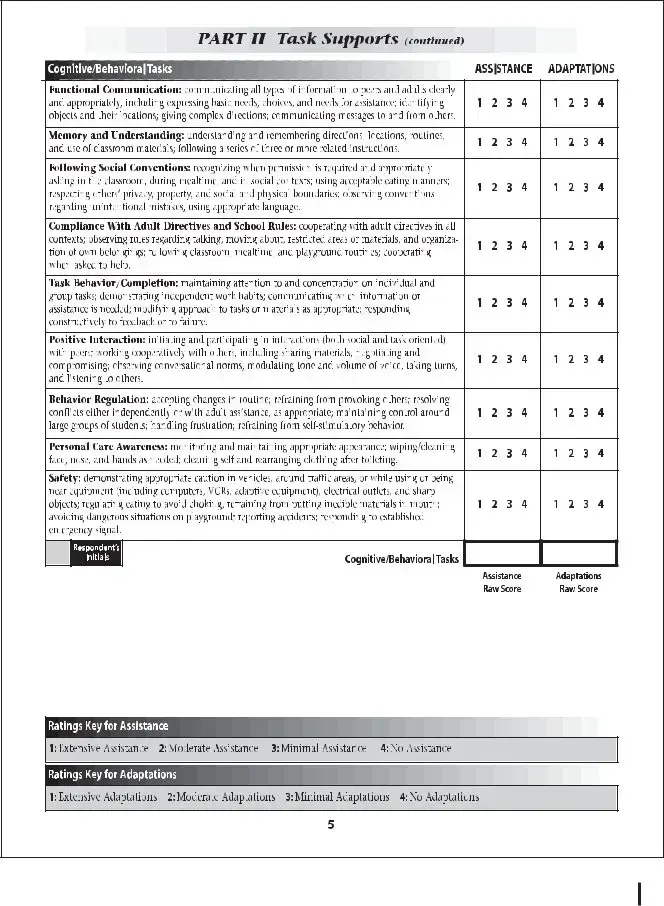
R E C O R D F O R M : C A S E S T U D Y 1 |
Copyright© 2008 Pearson Education, Inc. or its affliate(s).
127
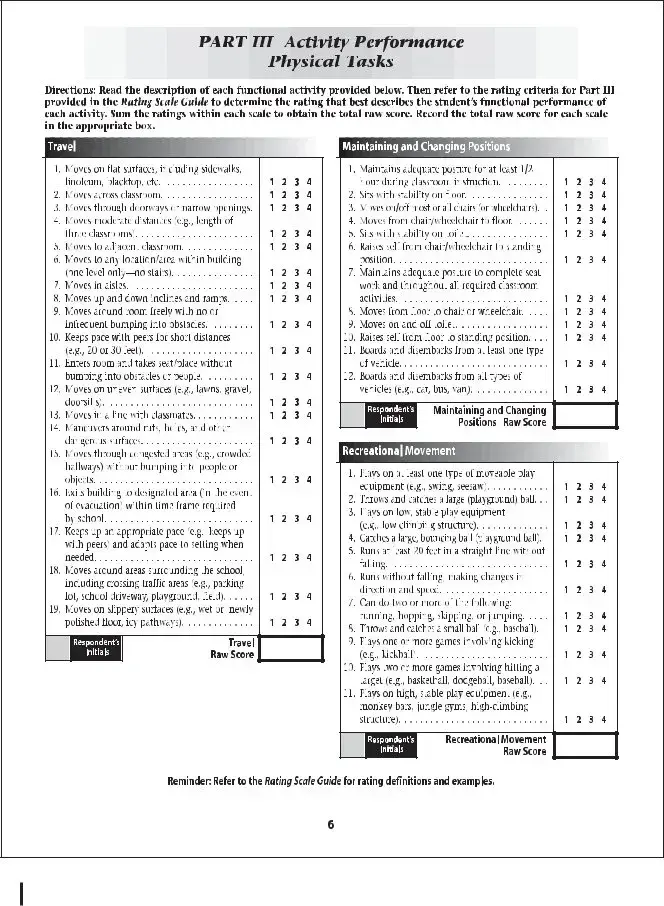
R E C O R D F O R M : C A S E S T U D Y 1 |
128
Copyright© 2008 Pearson Education, Inc. or its affliate(s).
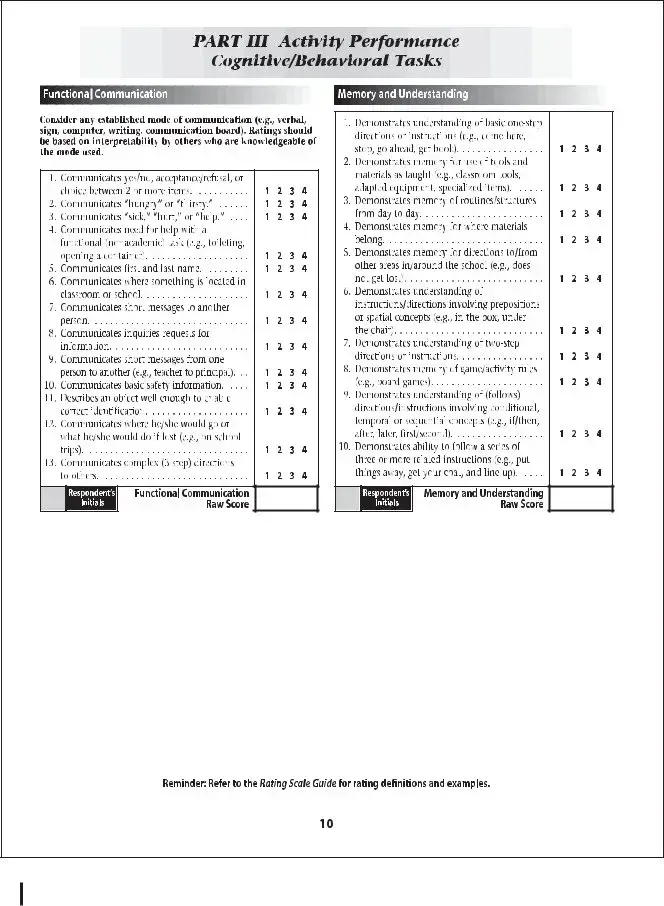
R E C O R D F O R M : C A S E S T U D Y 1
Copyright© 2008 Pearson Education, Inc. or its affliate(s).
129
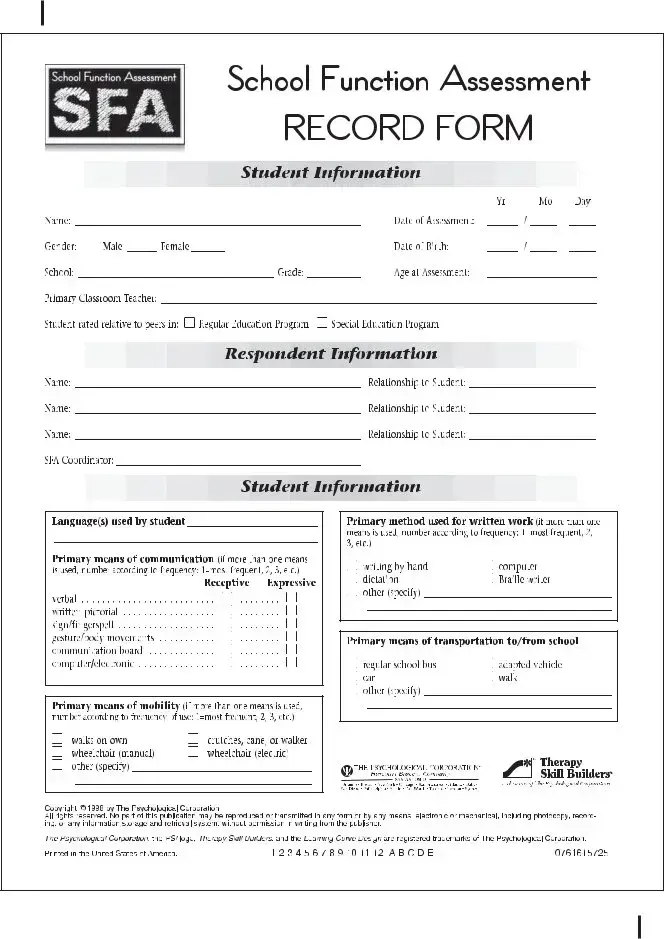
R E C O R D F O R M : C A S E S T U D Y 1 |
130
Copyright© 2008 Pearson Education, Inc. or its affliate(s).
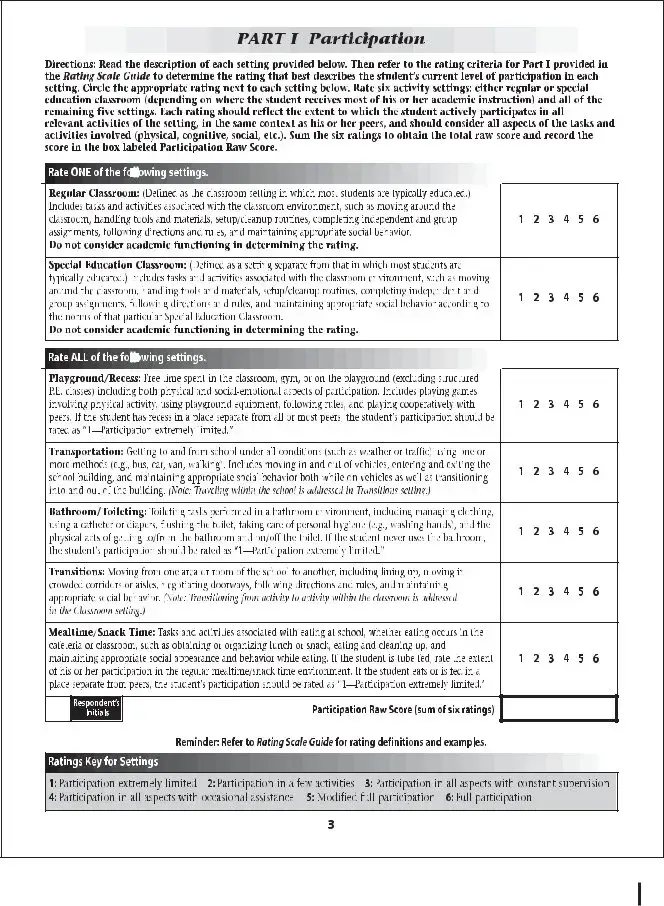
R E C O R D F O R M : C A S E S T U D Y 1
Copyright© 2008 Pearson Education, Inc. or its affliate(s).
131
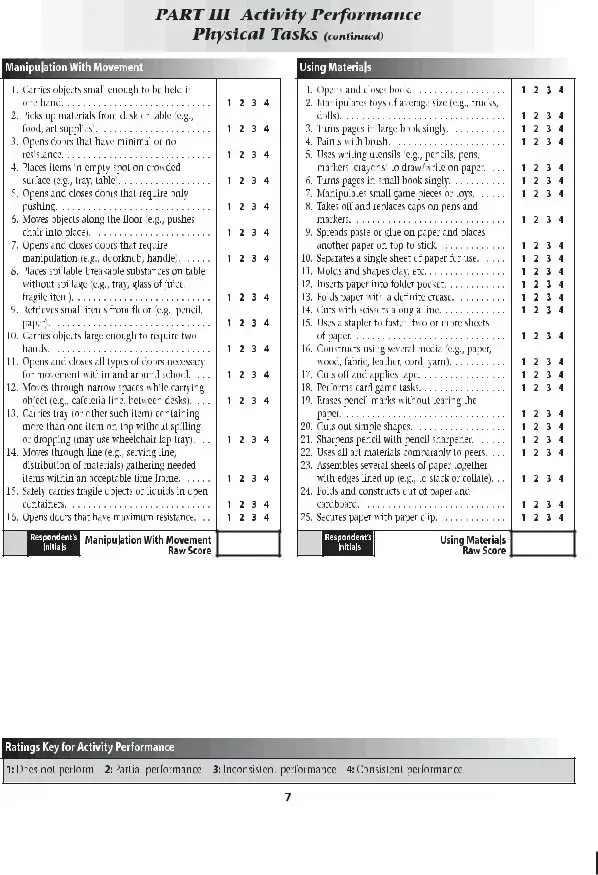
R E C O R D F O R M : C A S E S T U D Y 1 |
132
Copyright© 2008 Pearson Education, Inc. or its affliate(s).
Understanding School Function Assessment
What is the School Function Assessment form?
The School Function Assessment (SFA) form is a tool designed to evaluate a student's performance in school-related tasks. It focuses on how well students participate in their school environment, including their ability to engage in academic and social activities. This assessment helps educators identify areas where support may be needed.
Who should complete the School Function Assessment?
The SFA is typically completed by teachers or school professionals who are familiar with the student’s daily activities and performance. Their insights are crucial for obtaining an accurate picture of the student’s functional abilities in a school setting.
What are the key components of the School Function Assessment?
The SFA consists of several sections that assess different areas of school functioning. These include participation in academic tasks, social interactions, and self-care skills. Each section provides valuable information that can guide interventions and support strategies for the student.
How is the information from the School Function Assessment used?
Information gathered from the SFA is used to develop individualized education plans (IEPs) and to tailor interventions that meet the specific needs of the student. It can also help teachers and support staff monitor progress over time and adjust strategies as necessary.
Is parental input considered in the School Function Assessment?
Yes, parental input is valuable and often encouraged. Parents can provide insights about their child’s abilities and challenges outside of school, which can enrich the assessment process. Collaboration between parents and educators fosters a more comprehensive understanding of the student’s needs.
How often should the School Function Assessment be conducted?
The frequency of the SFA can vary based on the individual needs of the student and the school’s policies. Generally, it is advisable to conduct the assessment at key transition points, such as when a student enters a new grade or when there are significant changes in their performance or support needs.
Where can I find the School Function Assessment form?
The School Function Assessment form can typically be obtained from educational institutions, special education departments, or through authorized publishers. It is important to use the most current version to ensure accuracy and relevance in the assessment process.
Dos and Don'ts
When filling out the School Function Assessment form, there are several best practices to follow, as well as common pitfalls to avoid. Here’s a clear guide to help you navigate the process effectively.
- Do read the instructions carefully before starting. Understanding the requirements will save time and ensure accuracy.
- Do provide specific examples when describing a student's functioning. This helps to create a clearer picture of their needs.
- Do collaborate with other professionals involved in the student's education. Input from teachers, therapists, and parents can enrich the assessment.
- Do keep the language clear and concise. Avoid overly complex sentences that may confuse the reader.
- Don't make assumptions about a student's abilities. Rely on observations and data rather than generalizations.
- Don't rush through the form. Take the time needed to ensure that all sections are filled out thoroughly and accurately.
Check out Common Templates
Free Printable Puppy Health Guarantee Template - This contract specifies that no other warranties or guarantees are included.
For those looking to establish a business in Washington, understanding the necessary documentation is vital. A helpful resource for obtaining the necessary forms is the comprehensive guide on Articles of Incorporation templates available at Articles of Incorporation requirements essential for businesses.
Can a Father Sign Over His Rights in South Carolina - Individuals have the right to revoke their decision within 11 days of signing this affidavit.
